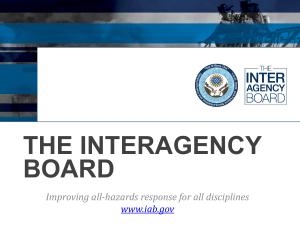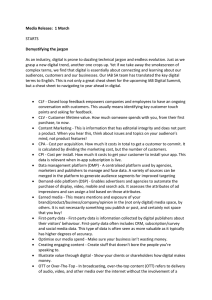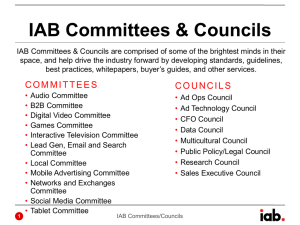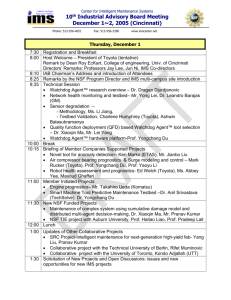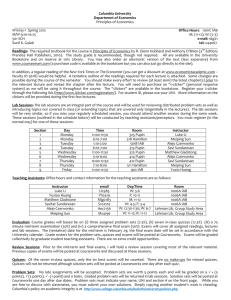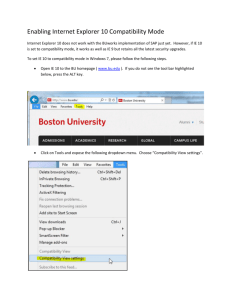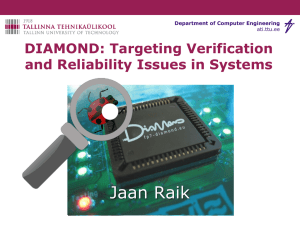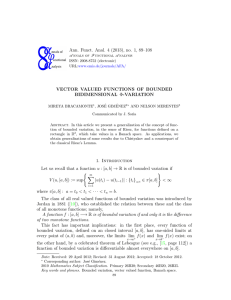Standardized Equipment List (SEL) (File Formpat: PPT)
advertisement
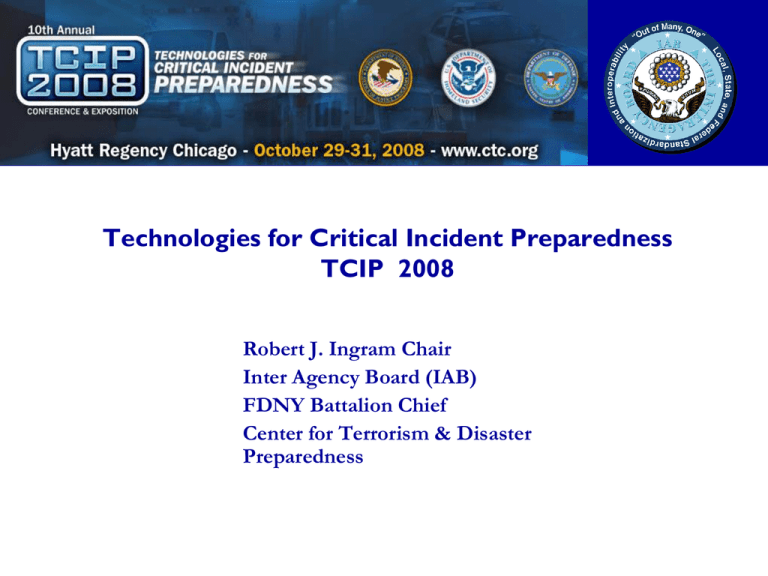
Technologies for Critical Incident Preparedness TCIP 2008 Robert J. Ingram Chair Inter Agency Board (IAB) FDNY Battalion Chief Center for Terrorism & Disaster Preparedness What is the IAB Mission? The InterAgency Board (IAB) for Equipment Standardization and Interoperability is designed to establish and coordinate local, state, and federal standardization, interoperability, compatibility, and responder health and safety to prepare for, train and respond to, mitigate, and recover from any incident by identifying requirements for an all-hazards incident response with a special emphasis on Chemical, Biological, Radiological, Nuclear or Explosive (CBRNE) issues. What is the IAB? The InterAgency Board for Equipment Standardization and Interoperability (IAB) is: • An independent user-working group • Based on voluntary participation • Comprised of various local, state, federal government agencies, and private organizations • Sanctioned by the U.S. Attorney General in 1998 • Founded by DOD-Consequence Management Program (CMP) and DOJFBI Countermeasures Unit • Chaired by a local First Responder • Federal Agency Coordinating Committee (FACC) The IAB Membership represents: •Local, state, and federal first responders (DHS’s ten responder disciplines) •Experienced responders from the fire, law enforcement, emergency medical, public health, public utilities, and military communities •Federal research facilities •Emergency management associations •Search and rescue •Standards development organizations •Homeland security communities What Committees and SubGroups make up the IAB? Committees - Federal Agency Coordinating Committee (FACC) - Standards Coordination Committee (SCC) - Science & Technology Committee (S&T) - Compatibility and Interoperability Committee (CIC) SubGroups - Training Medical Detection and Decontamination (D&D) Interoperable Communications & Information Systems (ICIS) - Personal Protective & Operational Equipment (PP&OE) 5 Who are the Members of the FACC? •The Department of Defense, Office of the Deputy Assistant to the Secretary of Defense, Chemical/Biological Defense • Department of Homeland Security, Federal Emergency Management Agency • Department of Homeland Security, Science and Technology Directorate • National Institute for Occupational Safety and Health, NPPTL • National Institute of Standards and Technology, Office of Law Enforcement Standards What is the Standardized Equipment List (SEL)? • The Standardized Equipment List (SEL) is a generic, minimum list of equipment and supplies recommended by the IAB to local, state, and federal government organizations in preparing for and responding to all-hazards incident response. • Bound copy & Electronic 7 What makes the SEL unique? •A nationally vetted and established guideline •Validated by the user community •Continually updated by the membership •A resource for users about adopted national standards, related reference standards, operating considerations including costs (initial and maintenance), mission/hazard roles, maintenance and training considerations •Does not identify specific products or manufacturers •Aligned with the Authorized Equipment List published by DHS Where can I find the SEL? • To request a hard copy, or to download a PDF, visit the IAB Website at www.iab.gov • An interactive version of the SEL is available through the Responder Knowledge Base (RKB) at www.rkb.us 9 Prioritized S&T Capability Gaps • Ranked by IAB membership – 3-D Personnel Locator for accountability – Communications in difficult environments (i.e. hi-rise, tunnels) without cumbersome repeaters. – Digital Speaker Microphones for SCBA – Secure, Digital Multi-Media Communications – Improved Portable Explosive Detection Capability – Dermal Exposure Standards for Toxic Industrial Chemicals – Bio Detection for Field use Capability 10 Prioritized Standards Gaps Ranked by IAB Membership • • • • • • • • Computer Aided Dispatch Interface Standard [voice, data, video] All-Hazard Core Competencies for Responders [training standards] Portable Explosives Detectors [point and standoff] Respiratory Protective Devices for Infectious Diseases [HHS and CDC to make guides] Uniform Public Health Surveillance Standard [HHS and CDC] Required Elements for Equipment Training Package Handheld Detectors for TICs [detection levels, testing-3rd party, etc] Law Enforcement PPE Standards [comparable to NFPA standards-NIJ] 11 Prioritized Interoperability & Compatibility Issues • Compatible chemical detector libraries Raman hazardous materials identification need for compatible libraries, legal issues—manufacturers’ proprietary libraries • Conflict between environmental sampling strategies and evidence/forensic collection • How clean is clean? Decontamination methods can not be adequately evaluated until a determination is made as to the level of cleanliness that is necessary • ASTM sampling standard. Elements in the first responder community have issues with ASTM suspicious powder sampling standard. What is bio sampling? Standard field screen method and technology. 12 Prioritized Interoperability & Compatibility Issues • Credentialing Standardization by skill set that translates nationwide and intrastate. • Standardization of batteries. From radios to all universal equipment • Uniform public health surveillance. Common data set/definitions between jurisdictions • Compatibility of wireless systems. All wireless systems (heads-up display on SCBA) during operations must be compatible and interoperable to eliminate interference and crosstalk • Compatibility of Special Weapons and Tactics (SWAT) body armor with SCBA. Current ballistic tactical vests hinder wearing the harness for SCBA 13 Prioritized Interoperability & Compatibility Issues • Modeling/ simulations standard. Modeling/simulations standard for state and local responder applications. There needs to be open standards developed for modeling/simulation training tools to allow for compatibility between systems. • NIMS resource typing definitions. Revisit initial 120 NIMS resource typing definitions (example: SWAT—fit in with HAZMAT EOD definition.) Conduct NFPA 1670/1006/470 series crosswalk. Highlight impact of typing changes on PPE, equipment, and professional qualifications. 14 Information Highway – RKB Responder Knowledge Base "Created to provide Emergency Responders, purchasers, and planners with a trusted, integrated, on-line source of information on products, standards, certifications, grants, and other equipmentrelated information." •Click "Smee" to launch the Tutorial 15 16 Responder Knowledge Base (RKB) 17 18 19 Questions? BC Robert J. Ingram FDNY-CTDP ingramr@fdny.nyc.gov Chair Inter Agency Board www.iab.gov
